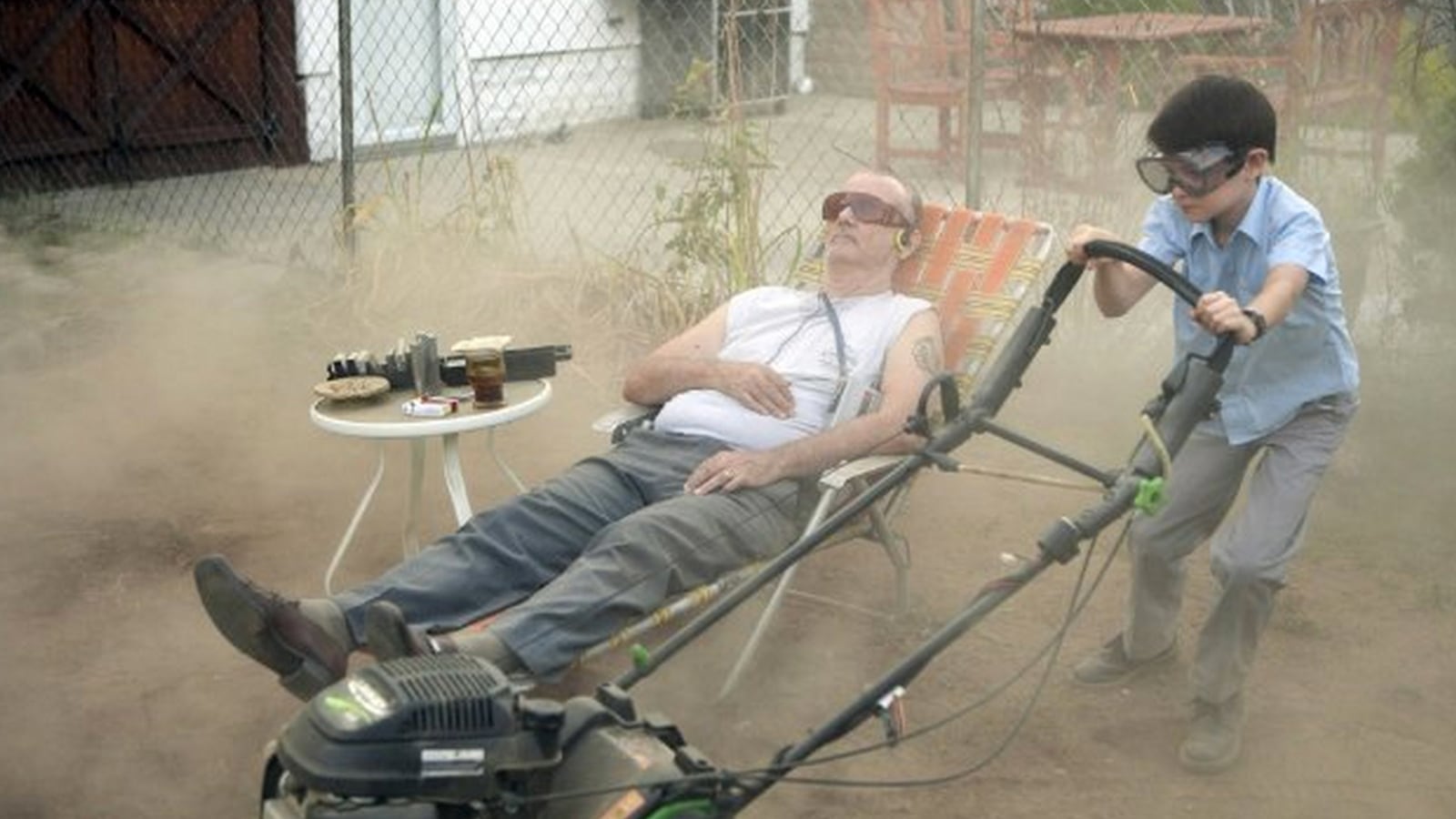If you asked me to describe my happy place, I would tell you it’s Bill Murray slumped over in a green lawn chair, wasted, mumbling Bob Dylan songs to himself. Credit Murray’s new film, St. Vincent, which premiered Friday night at the Toronto Film Festival, for showing me that such a moment could actually exist in the first place.
The film’s premiere kicks off a daylong celebration in Canada of all things Bill Murray. In addition to St. Vincent, TIFF is also holding a movie marathon––presented by frequent Murray collaborator Ivan Reitman––featuring some of Murray’s best work: Ghostbusters, Stripes, and Groundhog Day. St. Vincent isn’t nearly strong enough to approach the commercial and critical success of that murderer’s row of comedy classics, but it is populist, aimed at a wide swath of mainstream moviegoers who might be looking for something both funny and heartwarming to see this fall.
In the movie, Murray portrays Vincent McKenna, a brash, loud, foul-mouthed man who drinks and chain-smokes. His day mostly consists of sex with a pregnant Russian prostitute named Daka (played confidently by the always wonderful Naomi Watts) along with taking trips to the race track and his local watering hole, where he gets blasted and drunkenly dances to Jefferson Airplane. The routine is monotonous, and makes Vincent’s grayed-out, beat-down image look even sadder. However, things begin to transition when a 12-year-old named Oliver (newcomer Jaeden Lieberher) and his mother, Maggie (Melissa McCarthy), move next door. In search of someone to watch her son after school, Maggie asks Vincent to play the role of babysitter, which he agrees to, but only after guilting Maggie into paying him an hourly rate. The budding relationship between the ornery sexagenarian and the precocious young child ultimately gives the film its momentum. Vincent teaches young Oliver how to fight bullies, how to gamble, what a hooker is––you know, the important things in life. Along the way, he grudgingly learns something about himself, too: that he’s not the monstrous person he claims to be.
Overall, Murray’s role here is another addition to his long list of droll, touching character performances. It’s the little things that help bring his portrayal of Vincent to life: Stroking his white cat like a Bond villain, alternating between e-cigarettes and cigarettes with no regard for the difference, constantly running over his fence at night. The one unfortunate point: Vincent doesn’t ever get too crazy. As a few of my fellow film journalists concurred after the screening, it would have been fun to see Murray go even further. Why not let him cut loose and go all Billy Bob Thornton in Bad Santa, instead of easing his way out of something a bit grimier? But St. Vincent fails to resurface the filth we see in the main character in the movie’s first five minutes (its opening sequence features Vincent having sex with the aforementioned pregnant prostitute). That could have been Melfi’s call, or perhaps it was producer Harvey Weinstein, who’s known for injecting plenty of sentimentality into his projects (see: The final scenes of August: Osage County and Silver Linings Playbook, among others). Thankfully, it doesn’t diminish what the filmmakers were trying to accomplish.
St. Vincent is certainly sappy, and its premise simple. But it still manages to be both pleasurable and forthright. Either way, it was enough to get Murray’s attention. The script was so strong he decided to take a chance on a first-time writer and director to make the film. Before St. Vincent, Melfi had only produced a handful of shorts. With St. Vincent he was able to bring on one of the most sought-after and impossible-to-reach actors in history, along with a top-notch supporting cast in McCarthy, Watts, Chris O’Dowd, and Terrence Howard.
In fact, the story of how Melfi was able to get Murray to star in the first place is, like all Bill Murray tales, fascinating in and of itself. Melfi got ahold of Murray’s infamous 1-800 number and left countless messages. Eventually, Murray reached out, though it would be awhile before they were able to meet face-to-face, when the actor suddenly agreed to the part (you can read about the entire casting adventure here). Murray delivered on his end of the bargain by bringing Melfi’s character to light in a way only Murray can––with brilliant timing, sarcasm, and that thing no one else in movie history has: Bill Murray Charm.






